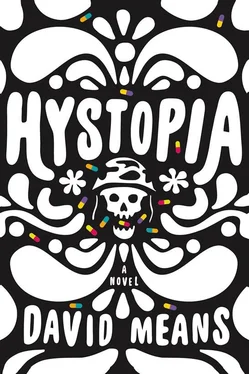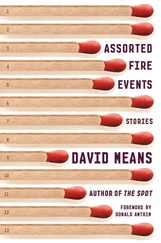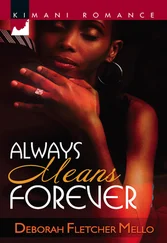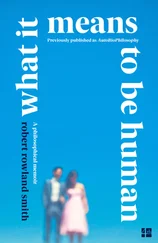He was breathing hard when he got back to the car.
The road blazed in the setting sunlight. A trooper car passed, going the other way, dome light flashing, and then he spoke, saying, I’m going over the border to Indiana for a few miles and then up again even though it’s not my style to go out of state even to make the odds better against being caught. You’re probably wondering why I shot that one back there, and I’m inclined to tell you, although I have doubts that you’ll understand what I’m going to say, he said, adjusting the radio dial, holding on to the wheel with his knees while lighting a cigarette, taking a deep draw and then another deeper one and glancing at her. I shot that guy because he reminded me of my uncle Lester, and my uncle Lester used to remind me of my father, and my father used to remind me of my uncle Lester, and Lester was a crazy son of a bitch who did things to kids that he should’ve done to adults because he had what my mother liked to call wandering hands, hands that were cut loose from his mind. My mother said Lester couldn’t help what he did but she still sent me over to his sign shop to learn the trade, in Detroit. He had a good little operation going as a vendor and he made shingles for dealerships and for the floors — warning signs and the like, things that said Careful Workers Make Better Cars, that kind of shit, and I got to his shop and began to learn to make stencils, cutting them out — I was handy with my own hands, you see — and I was a natural. That’s what the old geezer said. He said, You’re a natural at this, boy, holding my hand with his hand while he guided the brush, using that as pretext to handle and fondle my fingers, I see now, but I didn’t at the time because I was a kid and pure and clean and unseeing of those things, as most kids are, and that went on until a few weeks later he was trying to get his hands on other parts of me and finally, well, to cut this short and give you the whole story, I gave him a blast of paint in the face from a spray gun, and then I cut his throat and then I joined up, I enlisted, and the rest, as they say, is history, but that’s what made me kill that man out there, the fact that there was a likeness in the man to the man named Lester, although I have to say it wasn’t as good as killing uncle Lester himself, but I can’t do that again, can I, so all I can do is keep trying to find a way to get as close to doing it again as I can, he said madly, going on for at least twenty minutes, circling around on the story again to tweeze out more details; the little shacklike building that was the shop, the smell of paint and paper and turpentine.
He said. He said, and he said, and she closed her eyes and slid back down into the darkness, into the murmur of the engine and what felt like time itself at the center of her mind. (She could feel it. She could feel the wall the drugs made between the inner and outer, apparent in the stretch her mind made to locate the missing parts: the enfolded memories sat like a nut, like some seed of potential, tucked away to the side, hiding.) From time to time she came up and opened her eyes to watch the road, a single line drawing into the headlights as they fanned out to the edge of darkness on both sides, and then she went back down while he talked, his voice within a narrow range, the words pristine and sharp— enfolded, Mexico, gunplay, gunmetal, blood —but unattached, and then he was nudging her hard in the shoulder until she was up again to see a town passing in dim streetlight, the road dusky with ash, the boarded storefronts, and then she was back down again into the darkness while his words, again, floated— hideout, cops, tracking systems —until she awoke suddenly, startled by the sealed silence of the empty car, to see the stretch of bleak parking lot and the single-story hotel, fifteen units, with a brightly lit office in which Rake stood, his silhouette tall and angular, his head big and round, as he turned to look out through the window at her, lifting his arm and his hand and his finger in a sign, as if to say “one minute,” while the clerk handed him a clipboard. Then he came bounding out, with a slightly bowlegged walk, his hands jammed into his pockets, his face firm and grim, and he took her from the car, told her to stretch her legs, and led her into the room — wood paneled and smelling of lemon polish and bleach and stale cigarette smoke, with two grimy bedspreads, a television set against the wall, a Bible in red artificial leather on each nightstand. After she used the bathroom, he told her to sit in a chair.
When she came up and out again, Rake was counting and sorting tabs and baggies on the bedspread while she watched television, the picture unsteady, an old family drama with a clean-cut father and a runty, troubled kid with a crew cut who kept making wisecracks when they asked him to do something around the house. The mother had a beehive hairdo and wore an apron over her dress as she moved through the scenes with devotion to the tasks at hand. The show came in and out, bits of dialogue leading to laugh-track hilarity, the sound of waves hitting a shore. When she opened her eyes she saw, in a quivering black-and-white image, a father with his briefcase at his side, receiving a highball from the mother’s hand, holding it up like a chalice and saying something inaudible that sparked another, bigger laugh-track roar that sounded like a wave hitting a shore hard and then leaving with a long, slow, receding hiss, and then more waves to punch lines she didn’t hear because, on the bed, she was trying to remember and to reconstruct her own family tableau: father, mother, brother, the house, Colonial, the fat maple trees out front …
… she woke to the sound of Rake snoring and got up and went to the bathroom to pee and sat on the seat and stared at her knees, which were ruddy and brushed and scabbed. Then she went back into the bedroom and went to the window and lifted a blind and stared out at the parking lot. Two cars. Their own and an old G.T.O. grainy, sandpapery in the moonlight, and the playground, the spaceship monkey bars, the swing with the rotting seat, cordoned off with chain link. She watched a police cruiser, old-style, with a single dome, deliberately slow, blink, turn in, and sit.
Rake, she whispered. He rolled over beneath the sheets and snored again and seemed to settle even deeper into sleep. The room stank. The pills glinted.
There was a thump of doors and when she peeked again the cops were outside, adjusting their belts. One removed his hat. He slid his hand a couple of times up and over his scalp in a habitual motion and then slapped the brim of his hat against his thigh, as if to shake the dust from it, cowboy-style.
Rake, she said again. She went and gave him a nudge and stood back as he snorted and rolled over and settled back into sleep. So she nudged him again and he finally turned over and said, What the fuck do you want?
Cops, she said.
He sprang up, pulling on his boxers, and went to the window, lifting the slat with his thumb.
What were you doing up?
I was just up.
You were just up?
I was just up.
You use the phone?
No.
Out front, the cops seemed to be in surveillance mode, thumbs in their belts, turning one way and another. A car passed on the road and they turned to watch it.
Cops don’t just appear out of the blue like this. They’re onto something. They sniffed us out, he whispered. This is perfect, exactly. This is hoped-for shit. It can’t get any better than this.
Pulling his shirt on, tucking it neatly, he went to his rucksack and found his gun, held it up, spun the cylinder, opened it for a check, snapped it shut, and said, Take a peek and tell me if they’re coming to the door.
She looked out and saw them moving around Rake’s car, leaning in to the windows, and then standing behind it and reading the plates. One of them held a pad and jotted something down and then went to the cruiser and sat inside, lifting the microphone to his mouth.
Читать дальше












